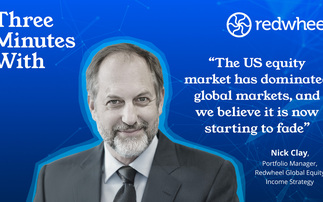Partner Insight: Emerging Market Debt assets have grown to a staggering $22trn as the universe has continued to mature and investors seek new sources of return outside of developed markets according to Jupiter's Alejandro Arevalo
The emerging market fixed income universe is today a mainstream asset class that can no longer be ignored by asset allocators. Recent investment flows continue to reflect this fact: total net assets in Europe-domiciled emerging market fixed income funds have increased from an estimated €7.7bn in 2007 to €255.7bn in September 2018, according to Morningstar.
Alejandro Arevalo, Fund Manager of Jupiter's Global Emerging Markets Corporate Bond and Global Emerging Markets Short Duration Bond funds, explains that as a global investor today, it is very difficult to avoid emerging markets.
He says: "If you look at Purchasing Power Parity (PPP), 60% of global GDP comes from emerging markets today. And that is 10% higher than it was ten years ago.
Yet with the asset class suffering a correction in 2018, fuelled by heightened risk aversion as a result of a number of market events - most notably in Turkey and Argentina, where macro concerns led to currency devaluations - investor caution towards emerging market debt (EMD) has returned.
However, Arevalo has approached the sell-off in the asset class seen in recent months in a different way, stating it is "good news" for long-term investors in the asset class. The reaction of the market to the sell-off in emerging market fixed income has been indiscriminate, he says particularly as fundamentals in the emerging market region are far from uniform. While Turkey and Argentina struggle to place inflation under wraps, other countries such as Indonesia and India are accelerating their rates of reform in an effort to stabilise their economies.
"[The sell-off] is just part of a normal cycle in emerging markets," says Arevalo. "In many of these sell-off cycles, the asset class often comes out stronger than before as governments push through reforms at a much quicker pace to avoid being one of those countries penalised by investors by standing still. For example, take a look at the market five years following the famous taper tantrum of 2013. There was a sharp correction in emerging market asset prices, yet today the asset class has recovered and in many respects is much stronger now. I believe this time round, once again, the region will come out much stronger again."
More importantly, when it comes to fixed income, Arevalo also believes the correction has also helped to sift out "tourist" investors from EMD, resulting in a "cleaner" asset class and a shift to the asset class' core fundamentals.
Click here to read the full article from the exclusive Guide to Emerging Markets, Asia and Japan from Jupiter Asset Management













